As a solo traveler, you will embark on a journey of self-discovery and freedom. Setting their own pace, they explore with curiosity, build confidence, and form genuine connections. It also makes meeting locals easier, as people often approach solo travelers more readily. Beyond the destinations, it’s about growing personally while creating authentic, unforgettable experiences.
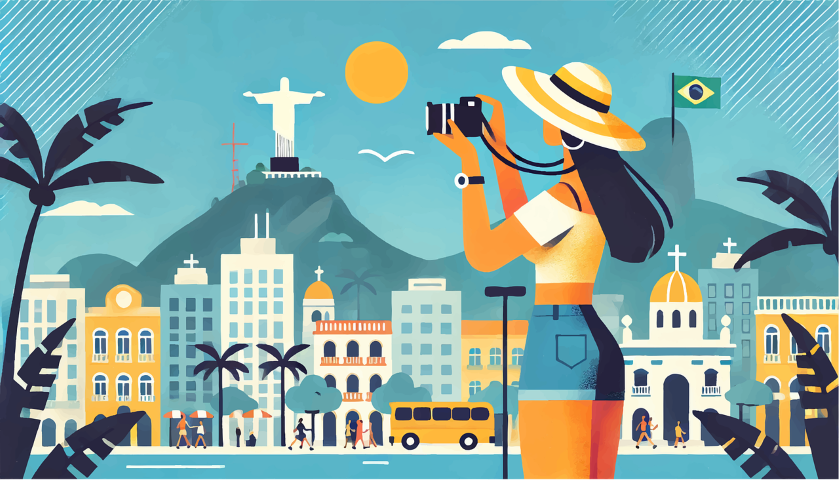
Benefits of Traveling Alone
Going alone is a deeply rewarding experience that fosters independence, self-discovery, and personal growth. When you travel alone, you have the freedom to set your own pace, choose your destinations, and make spontaneous decisions without compromise. This sense of autonomy builds confidence and problem solving skills, as you navigate new cultures, languages, and challenges on your own. Without the influence of companions, you become more attuned to your own preferences, leading to greater self-awareness. Solo travel also encourages stepping out of your comfort zone whether striking up conversations with strangers, trying unfamiliar foods, or exploring hidden gems ultimately expanding your perspective on the world.
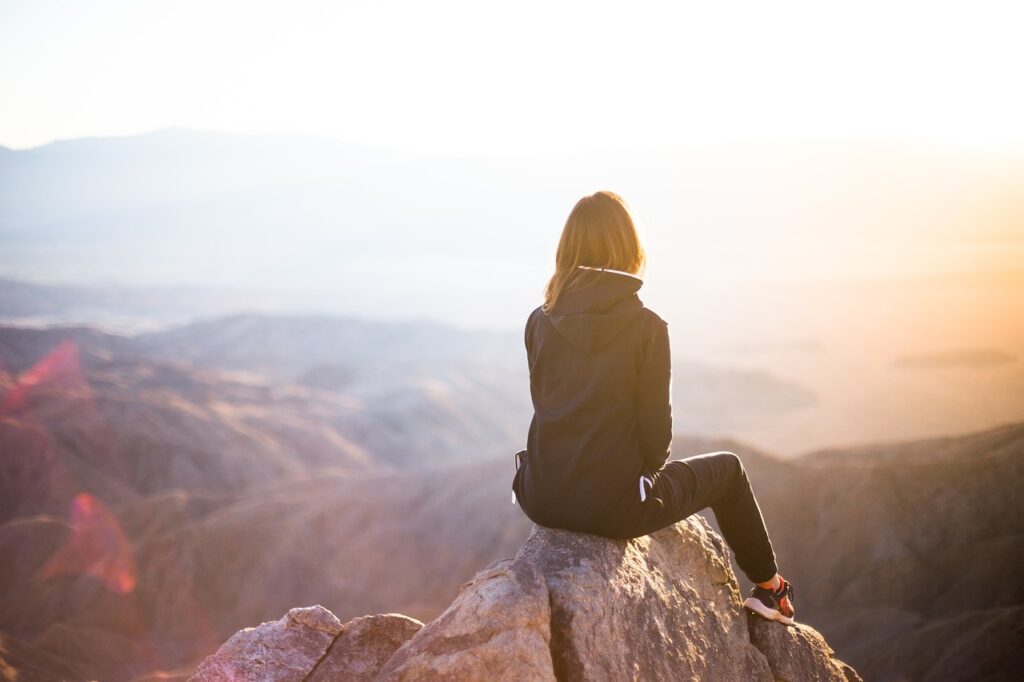
Additionally, solo travel enhances adaptability and resilience. Unexpected situations, like missed trains or language barriers, teach patience and resourcefulness. Without the safety net of friends or family, you learn to trust your instincts and make quick decisions. Moreover, traveling alone often leads to deeper connections with locals and fellow travelers, as you’re more approachable and open to new interactions. The solitude also provides valuable time for reflection, allowing you to disconnect from daily routines and return home with clarity and renewed motivation. Whether it’s a weekend getaway or a months-long journey, solo travel empowers you to embrace uncertainty, cultivate independence, and create unforgettable memories on your own terms.
Overcoming The Fear of Traveling Alone
The idea of traveling alone can be intimidating fears of loneliness, safety concerns, or the uncertainty of navigating unfamiliar places often hold people back. However, overcoming these fears is not only possible but incredibly liberating. Start by taking small steps, such as a solo day trip or a weekend getaway to a nearby city. This builds confidence before tackling longer journeys. Research is key: reading travel blogs, learning about your destination’s culture, and mapping out safe accommodations can ease anxiety. Remember, millions of people travel solo every year, and with proper preparation, you can too.
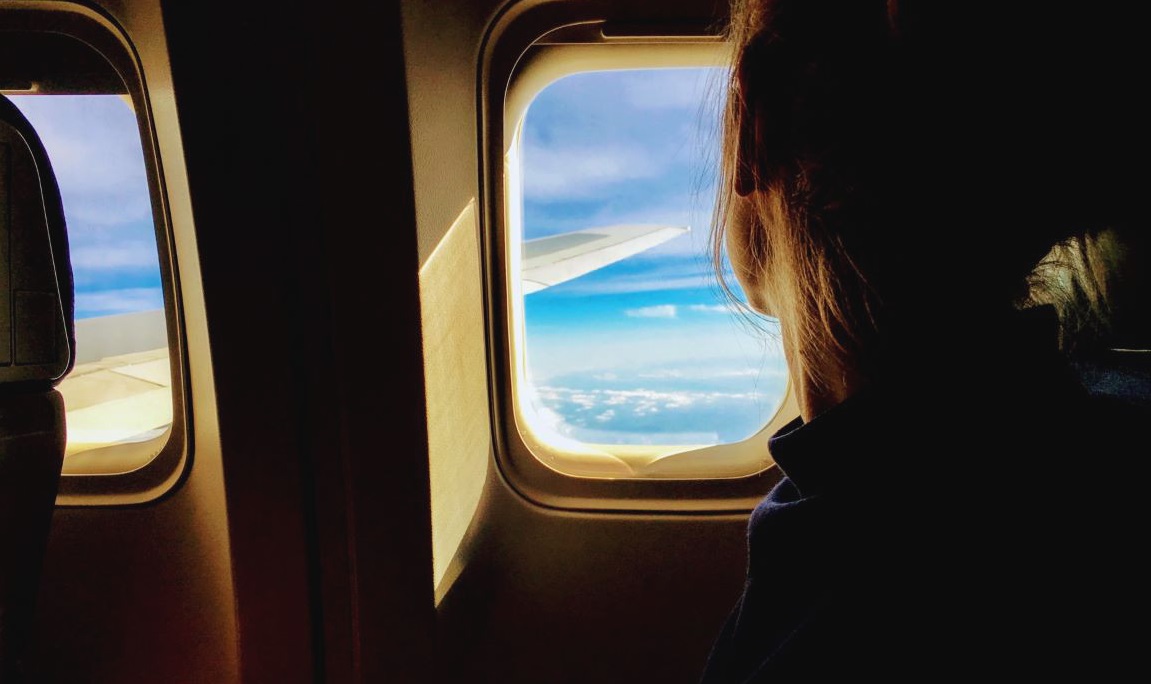
One of the biggest mental hurdles is the fear of being alone, but solitude often leads to meaningful experiences. Without the comfort of companions, you become more open to meeting new people whether fellow travelers in hostels, friendly locals at cafes, or tour guides who share insider tips. Carrying a book or journal can help ease initial discomfort in social settings. Safety concerns can be managed by staying aware of your surroundings, avoiding risky areas at night, and keeping loved ones updated on your plans. Technology also helps, with apps for navigation, translation, and emergency assistance making solo travel smoother than ever.
The rewards of facing these fears far outweigh the initial discomfort. Solo travel teaches resilience, adaptability, and self-reliance skills that extend beyond your trip. Every challenge you overcome, from missed buses to language barriers, reinforces your capability. Over time, the fear transforms into excitement for the freedom and growth that solo adventures bring. By taking that first step, you’ll discover not just the world, but also your own strength and independence.
Solo Travel vs. Group Travel
Solo travel offers unparalleled freedom and self-discovery, allowing you to set your own pace, follow spontaneous impulses, and deeply connect with your surroundings. Without compromising on preferences, you can linger at a museum for hours or change plans last minute a luxury rarely possible in groups. Solo trips build confidence and problem-solving skills as you navigate challenges independently. However, the experience can sometimes feel lonely, and costs may be higher without shared expenses for accommodations or transportation. Safety concerns also weigh heavier when traveling alone, particularly in unfamiliar destinations.
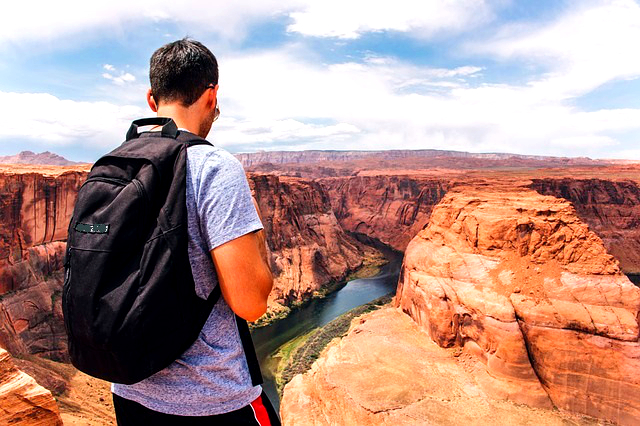
Group travel, on the other hand, provides built-in companionship and shared memories. With logistics often handled by a tour company or organizer, there’s less stress over planning, and splitting costs makes certain expenses more affordable. Group dynamics can also ease cultural barriers, as collective energy often leads to more social opportunities. Yet, the trade-off is less flexibility itineraries are fixed, and personal interests may take a backseat to group consensus. Conflicts over budgets, pacing, or preferences can also arise. Ultimately, the choice depends on your priorities: solo travel rewards independence and introspection, while group travel offers camaraderie and convenience. For many, a mix of both styles creates the most balanced travel experience.
Traveling Alone Budgeting Tips
Traveling alone can be a great experience, but managing your finances wisely is key to making the most of your adventure without breaking the bank.
Start by setting a realistic daily budget that accounts for accommodations, food, transportation, and activities:
- Hostels, guesthouses, or platforms like Airbnb often offer affordable lodging, while Couchsurfing can provide free stays with locals just prioritize safety and read reviews carefully.
- For meals, opt for street food or local markets instead of touristy restaurants, and consider booking accommodations with kitchen access to save on dining costs.
- Transportation expenses can add up quickly, so research budget friendly options like buses, trains, or rideshares instead of taxis. Many cities also offer tourist passes for discounted entry to attractions and public transit.
- Flexibility is your greatest ally when traveling solo. Booking flights and accommodations during off-peak seasons or mid-week can lead to significant savings.
- Travel apps and websites like Skyscanner, Hopper, or Rome2Rio help compare prices and find deals. Avoid unnecessary fees by using no foreign transaction fee credit cards or withdrawing larger sums of cash at once to minimize ATM charges.
- Lastly, leave room in your budget for spontaneity whether it’s an unexpected day trip or a unique local experience while keeping track of expenses with a budgeting app like you Need a Budget (YNAB) or Mint
With smart planning, solo travel can be both affordable, proving that adventure doesn’t have to come with a hefty price tag.
Safety Tips When You Travel Alone
Solo travel offers incredible freedom, but staying safe should always be your top priority:
- Start by researching your destination thoroughly understand local customs, unsafe areas to avoid, and emergency contact numbers.
- Always share your itinerary with someone back home and check in regularly. When booking accommodations, choose well reviewed hostels or hotels in central locations, and consider female only dorms if you’re a woman traveler.
- Pack smart: carry a doorstop alarm for your room, a money belt for valuables, and copies of important documents stored separately from the originals.
- Be mindful of your surroundings, especially at night.
- Avoid displaying expensive jewelry or electronics that might make you a target and trust your instincts if a situation feels unsafe, leave immediately.
- Learn basic phrases in the local language to navigate emergencies.
- Use reputable transportation options rather than unmarked taxis.
- When socializing, be cautious about sharing personal details or your accommodation location with new acquaintances.
- Technology can be a lifesaver download offline maps, use tracking apps like Life360, and carry a portable charger.
Remember, most people you meet will be kind and helpful, but maintaining a healthy level of caution will ensure your trip remains both thrilling and secure. By planning ahead and staying aware, you can minimize risks while maximizing the incredible experiences your trip.
Preparing for Your Solo Adventure
Preparing for solo travel involves a unique blend of anticipation, practicality, and self reliance. Whether embarking on a solitary trek through remote landscapes or navigating bustling city streets alone, the key to a successful journey lies in meticulous preparation. First and foremost, understanding the destination is crucial. Researching local customs, cultural norms, and potential challenges not only enriches the experience but also ensures respect for the places visited. This knowledge forms a foundation for informed decisions and enhances safety throughout the trip.
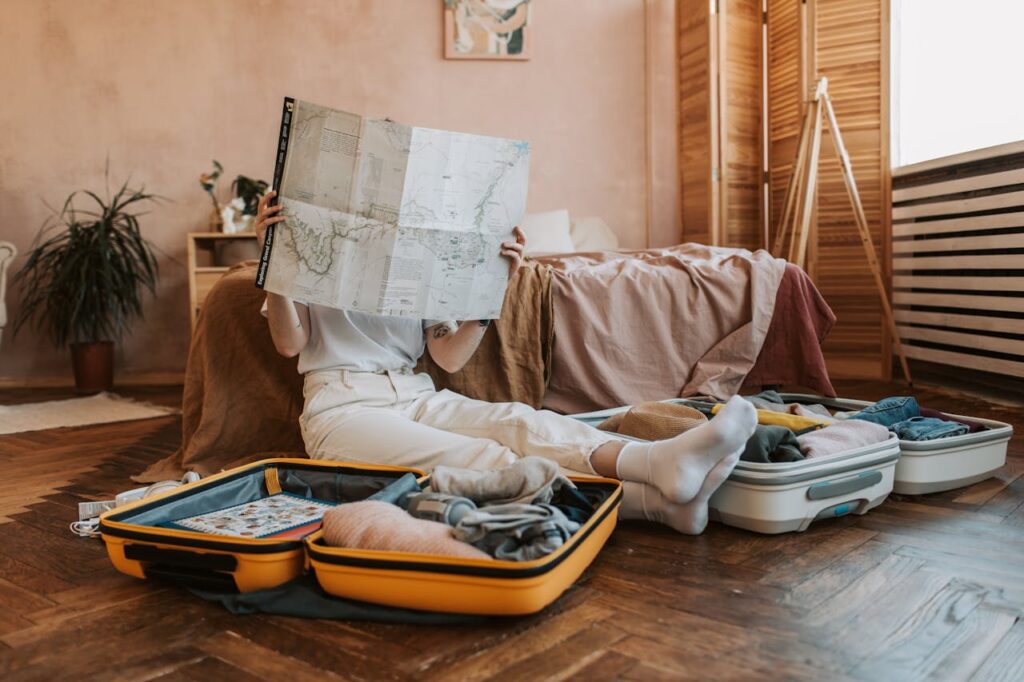
Packing becomes a strategic endeavor when traveling solo. Minimizing luggage while maximizing essentials is a balancing act. Lightweight, versatile clothing suited to the climate and activities planned is essential, along with reliable gear such as a sturdy backpack, comfortable footwear, and a compact first aid kit. Every item packed should serve a clear purpose, from multi-tool gadgets to portable chargers for electronics. Additionally, carrying copies of essential documents, such as passports and travel insurance details, ensures readiness for unforeseen circumstances.
Navigating logistics solo demands adaptability and foresight. Familiarizing oneself with transportation options, whether public transit schedules or rental car procedures, reduces stress upon arrival. Technology proves invaluable here, from navigation apps that work offline to language translation tools that facilitate communication in unfamiliar surroundings.
Embarking on a solo adventure is both exhilarating and empowering, but thorough preparation is key to ensuring a smooth and enjoyable experience. Create a flexible itinerary that balances must-see attractions with free time for spontaneity, but remain open to changes as opportunities arise. Booking your first few nights’ accommodation in advance provides peace of mind, especially when arriving in a new place after a long journey.
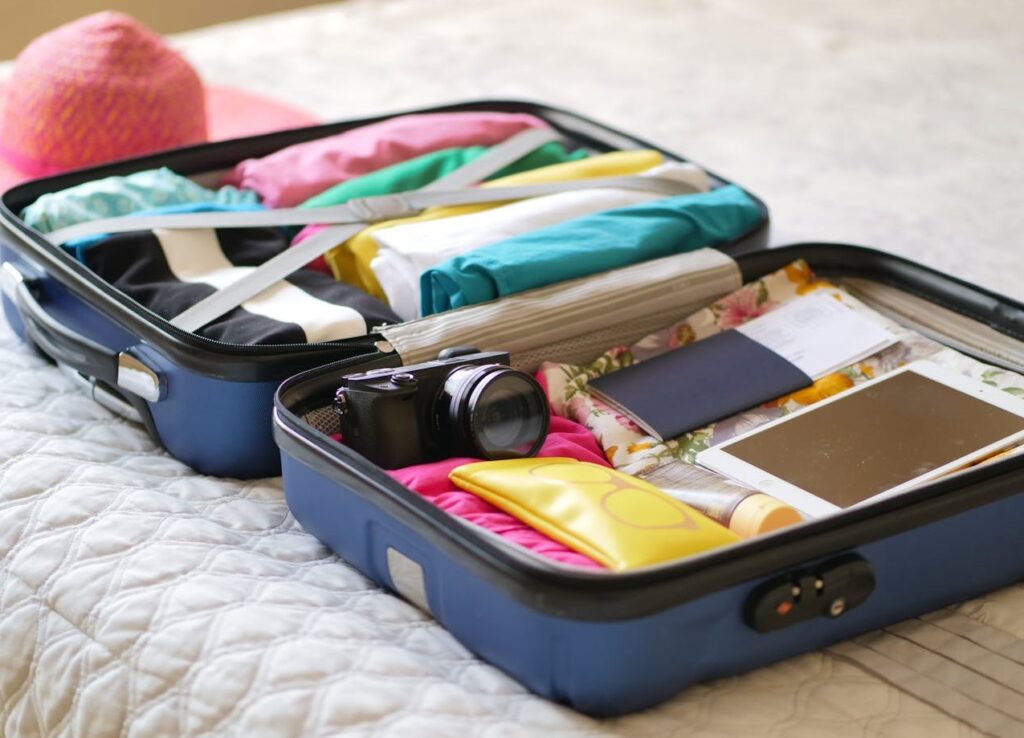
Packing strategically is crucial for solo travelers. Opt for a versatile capsule wardrobe that can be layered, and prioritize comfort over fashion. Essential items include a reliable universal adapter, portable charger, basic first-aid kit, and copies of important documents stored separately from the originals. Invest in quality travel insurance that covers medical emergencies, trip cancellations, and lost belongings it’s a small price for significant protection. Financial preparation is equally important: notify your bank of your travel plans, carry multiple payment options (including some local currency), and set a daily budget to avoid overspending.
Mental preparation is often overlooked but vital. Visualize handling potential challenges like language barriers or transportation hiccups to build confidence. Learn key phrases in the local language, as even basic greetings can open doors to meaningful connections. By preparing thoroughly while remaining adaptable, you’ll set the stage for a transformative experience that combines independence, self-discovery, and the pure joy of exploring the world on your own terms.
Finally, flexibility remains essential throughout the journey. Unexpected detours or delays may arise, requiring quick thinking and a positive outlook. Embracing spontaneity can lead to memorable experiences that defy initial plans. In essence, preparing for solo trip is a blend of practicality, cultural sensitivity, and a spirit of exploration.
Best Destinations for Solo Travelers
Going alone opens the door to unique experiences and the freedom to explore at your own pace. Some destinations stand out for their safety, accessibility, vibrant culture, and welcoming atmosphere, making them ideal for solo adventurers. One of the top choices is:
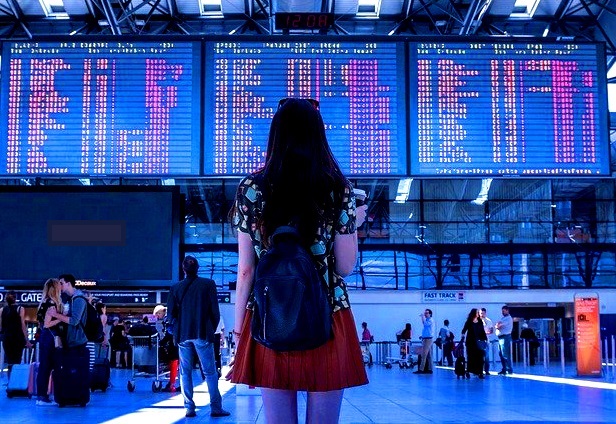
- Japan, where efficiency, cleanliness, and a deep respect for personal space make traveling alone a breeze. From the bustling streets of Tokyo to the serene temples of Kyoto, solo travelers can enjoy a perfect mix of tradition and modernity.
- Iceland is another favorite, especially for nature lovers. Known for its stunning landscapes, low crime rate, and friendly locals, Iceland is ideal for hiking, road-tripping, or simply soaking in hot springs under the northern lights.
- Portugal, particularly Lisbon and Porto, offers rich culture, affordable prices, and a laid-back vibe perfect for those seeking both exploration and relaxation. Its public transport and walkable cities make getting around solo simple and enjoyable.
- Bali in Indonesia is a popular destination for a more spiritual or reflective trip. With its yoga retreats, healthy cuisine, and lush scenery, it attracts solo travelers looking for peace and personal growth.
- New Zealand is another great option, offering thrilling outdoor adventures like hiking, kayaking, and bungee jumping in a safe and well organized environment.
- Barcelona or Amsterdam for solo travelers interested in history and vibrant city life, are excellent choices. Both cities are easy to navigate, full of cultural landmarks, and known for their welcoming nature toward visitors.
- Thailand, especially Bangkok and Chiang Mai, ranks among the best destinations for solo travelers due to its affordability, rich culture, and the welcoming nature of its people. These two cities offer contrasting yet complementary experiences, perfect for anyone exploring Southeast Asia alone.
- Bangkok, Thailand’s vibrant capital, is a thrilling introduction to solo travel. The city is alive with energy—street markets, golden temples, rooftop bars, and tuk-tuks weaving through traffic. You can explore landmarks like the Grand Palace, Wat Pho, and the bustling Chatuchak Market with ease. Bangkok’s efficient public transportation, including the BTS Skytrain and MRT, makes it convenient to navigate the city independently. Plus, the abundance of hostels, co-working cafes, and social events makes it easy to meet other travelers.
- Chiang Mai in contrast located in northern Thailand, offers a more relaxed and spiritual atmosphere. Surrounded by mountains and dotted with over 300 temples, it’s a haven for solo travelers seeking calm, cultural immersion, or wellness retreats. Popular activities include visiting the ancient city walls, attending traditional cooking classes, or volunteering at ethical elephant sanctuaries. Chiang Mai is also a digital nomad hotspot, known for its friendly expat community and slower pace of life compared to Bangkok.
Ultimately, the best destination for solo travel depends on your interests and travel style, but these places consistently rank high for their balance of safety, adventure, and unforgettable experiences.
Meeting People as A Solo Traveler
Meeting people as a solo traveler is one of the most rewarding aspects of exploring the world alone. While setting out by yourself may seem intimidating at first, it often leads to deeper connections and more spontaneous interactions than group travel. One of the easiest ways to meet fellow travelers is by staying in hostels, guesthouses, or social accommodations. Many hostels offer communal spaces, organized tours, and social events like game nights or group dinners that encourage mingling and friendship among guests from around the world.
Walking tours, cooking classes, and local workshops are also excellent ways to connect with others who share similar interests. These activities naturally bring people together in relaxed settings and provide built-in conversation starters. In more urban areas, co-working cafes and digital nomad hubs attract solo travelers and remote workers, offering great opportunities to meet people over a coffee or shared workspace.
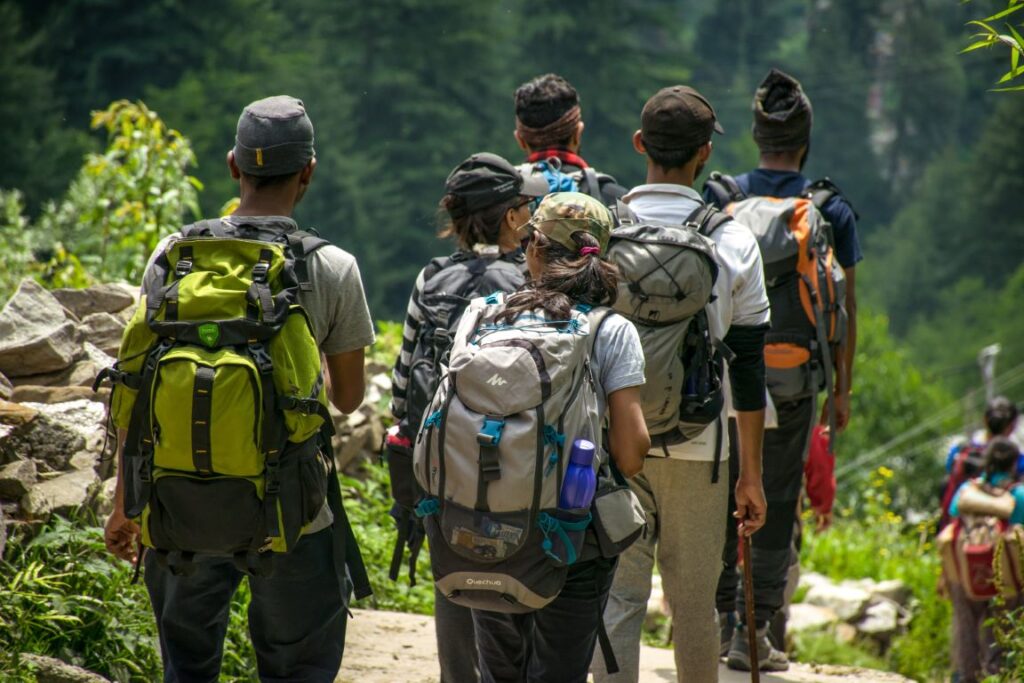
Social media and travel apps like Couchsurfing and Meetup can help solo travelers connect with locals or fellow travelers in real time. Many cities also have Facebook groups dedicated to travelers or expats, where meetups and tips are regularly posted.
Don’t underestimate the power of simply being open and approachable whether you’re on a train, at a market, or eating street food, a smile and a friendly comment can go a long way. Most solo travelers find that people are generally curious, helpful, and eager to connect, especially in destinations known for their hospitality.
Ultimately, traveling solo doesn’t mean being alone. With the right mindset and a bit of initiative, it’s easy to form meaningful connections that can turn a solo trip into a shared adventure full of stories, friendships, and lasting memories.
Advice for Women Traveling Alone
Traveling alone can be an empowering and enriching experience for you, offering freedom, confidence, and personal growth. However, it also requires a thoughtful approach to safety and preparation.

One of the most important tips for women traveling alone is to trust your instincts if a situation or person feels off, don’t hesitate to remove yourself or say no. Intuition is a powerful tool when navigating unfamiliar environments.
- Remember, researching your destination thoroughly before arrival is essential. Learn about local customs, dress codes, and cultural norms to show respect and avoid drawing unwanted attention.
- Always research female-friendly accommodations look for hostels with female only dorms or hotels with 24/7 security.
- Booking accommodations in safe, central areas with good reviews from other solo female travelers can also offer peace of mind.
- Carry a portable door lock or wedge for added safety in rooms. Dress modestly to respect local customs and avoid unwanted attention.
- Carry a portable charger and keep important contacts written down, including local emergency numbers and the address of your accommodation.
- Share your live location with a trusted contact and check in regularly. Avoid walking alone at night.
- Learn basic self-defense on Youtube or with private self-defense instructor
- Use verified taxi apps instead of hailing cabs.
- Keep a whistle or personal alarm handy, and learn basic self-defense moves.
- Be wary of overly friendly strangers; politely decline drinks or invitations that feel unsafe.
- Pack health essentials like menstrual products and emergency contraception, as they may be hard to find.
- Packing smart is also key bring lightweight clothing that’s versatile and culturally appropriate, along with a crossbody bag or anti-theft backpack to keep valuables secure.
- Trust your instincts if something feels off, leave immediately.
Finally, maintain confidence and awareness walk with purpose, stay alert, and be cautious with alcohol or night outings. Most importantly, embrace the journey. Traveling alone as a woman can be incredibly liberating, offering not just adventure, but also a deeper connection to the world and yourself.
Practical Tips for Men on a Solo Trip
Traveling alone as a man comes with unique advantages and challenges, so being prepared is key.
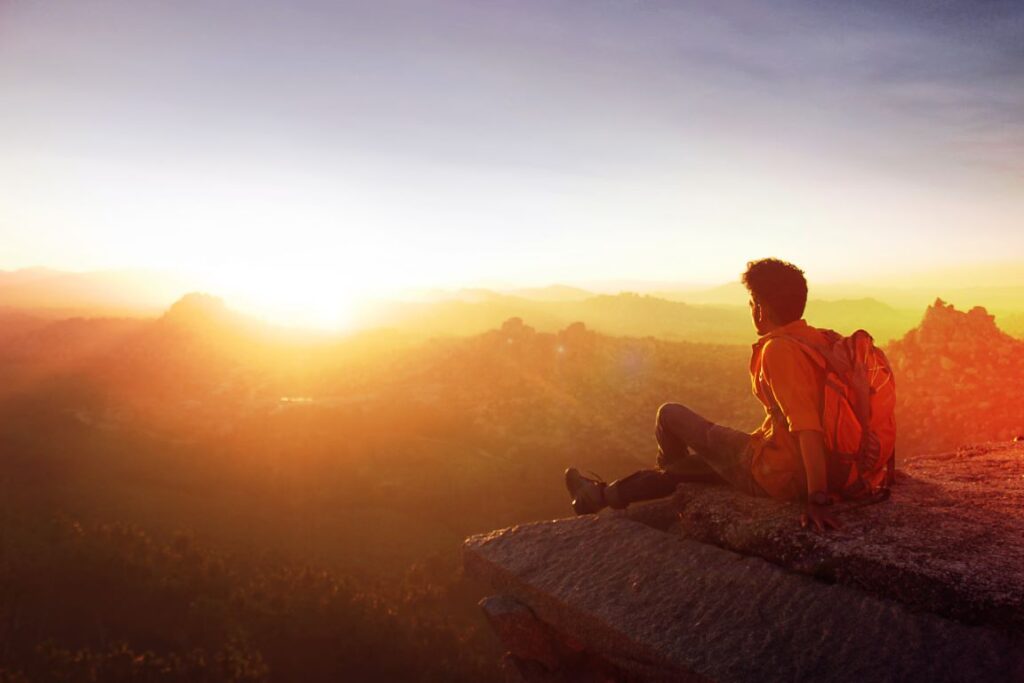
- First, if it’s possible blend in by dressing like a local avoid flashy logos or expensive watches that might draw unwanted attention.
- Carry a decoy wallet with a small amount of cash and expired cards to hand over in case of robbery, while keeping your real money and passport hidden in a secure belt or pouch.
- When it comes to socializing, be cautious with new acquaintances, especially in bars or clubs some scams target solo male travelers with overpriced drinks or fake friendships.
- Stick to well lit, public places when meeting people.
- Choose accommodations wisely opt for hostels with good security or reputable hotels and avoid staying in isolated areas.
- If you’re into nightlife, always watch your drink to avoid being drugged, a risk that, while often associated with women, can also affect men.
- For health and safety, carry a basic medical kit with condoms, pain relievers, and any necessary prescriptions.
- Finally, trust your gut if a situation feels off, walk away.
Solo travel is about freedom, but staying smart ensures a smooth and unforgettable journey. In many countries, men traveling alone can be seen as low risk targets, but staying aware is still crucial.
Tips for Seniors Traveling Solo
As a senior is a fantastic opportunity to explore at your own pace, indulge your curiosities, and enjoy complete freedom. With a lifetime of experience behind you, you’re uniquely equipped to appreciate the nuances of a new destination.
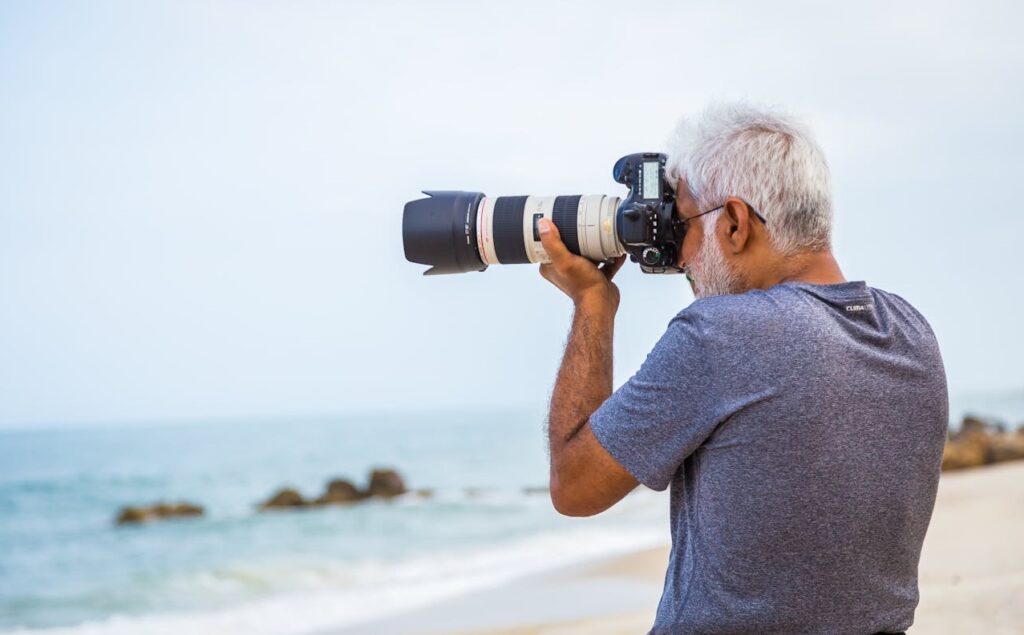
A little extra planning can ensure your journey is not only memorable but also safe, comfortable, stress-free and pleasant.
- Pace Yourself: Don’t over schedule. Plan for one or two key activities per day and build in ample time for rest. Consider slower travel, spending more days in fewer locations.
- Choose Senior-Friendly Destinations: Opt for places with good infrastructure, quality healthcare, walkable city centers, or reliable public transport. Consider river cruises, tour companies specializing in seniors, or all-inclusive resorts for a easier experience.
- Travel Insurance is Non-Negotiable: Purchase a comprehensive policy that covers medical emergencies, evacuation, and trip cancellation. Declare any pre-existing conditions upfront.
- Comfortable Footwear is Key: Bring broken-in, supportive walking shoes. This is your most important packing decision.
- Pack Light: Use a lightweight, wheeled suitcase that you can manage easily. You’ll thank yourself at airports and train stations.
- Strategic Scheduling: Schedule a “recovery day” after any long flight to adjust and avoid exhaustion.
- Leverage Your Age: Ask about senior discounts everywhere – attractions, museums, trains, buses, and even restaurants. Always carry a form of ID to claim them.
Traveling solo later in life is not about keeping up with anyone else; it’s about crafting a journey that perfectly suits your pace and interests. By prioritizing your health, safety, and comfort, you open the door to a newfound independence, and the simple joy of discovering something new on your own terms.
Solo Travel Packing List
Packing efficiently is key when you travel alone you’ll be carrying everything yourself, so prioritize versatility, security, and convenience:
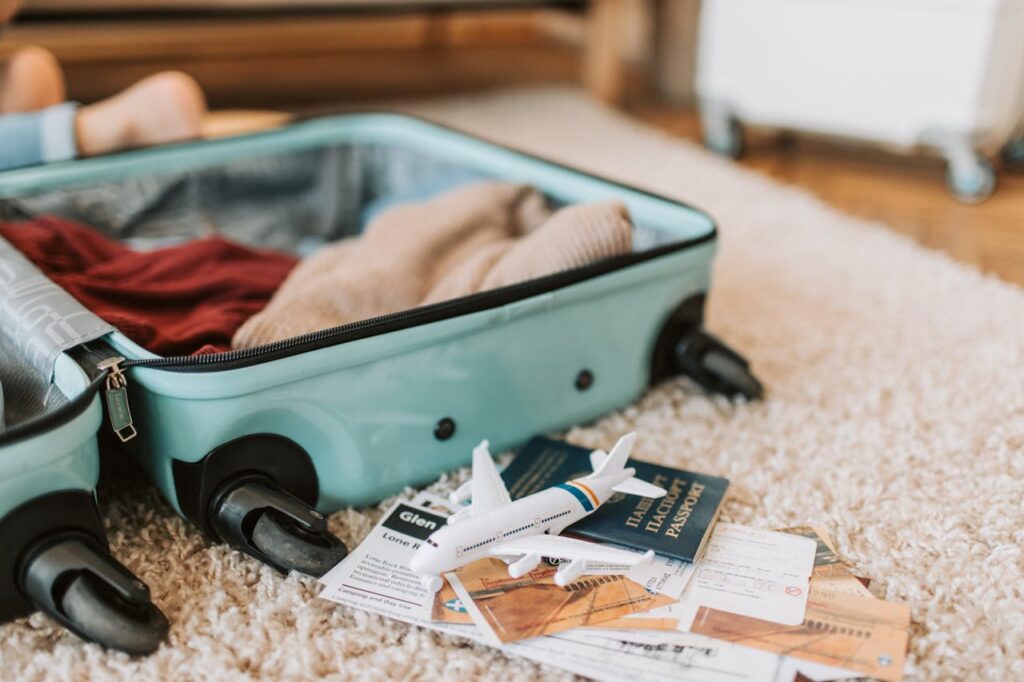
- Start with a durable, carry on sized backpack or suitcase (40-50L max) to avoid checked baggage hassles.
- For clothing, stick to a capsule wardrobe: neutral-colored, quick-dry fabrics that mix and match easily think 2-3 tops, 1-2 bottoms, a lightweight jacket, and a versatile outfit for evenings.
- Pack comfortable, broken-in walking shoes and flip-flops for showers or beaches.
- Essential gear includes a money belt or hidden pouch for passports/cash, a portable charger, and a universal adapter.
- Bring a padlock for hostel lockers
- A foldable daypack for excursions. A microfiber towel, reusable water bottle, and packing cubes keep things organized.
- For safety, include a mini first aid kit (bandages, pain relievers, antiseptic), pepper spray (if legal), and copies of important documents stored digitally.
- Tech essentials depend on your needs: a smartphone with offline maps.
- Tablet for entertainment, and noise canceling earbuds for flights.
- As a solo travelers you should pack a portable door alarm or rubber doorstop for added security in accommodations.
- Toiletries should be travel sized (TSA compliant if flying), including sunscreen, solid shampoo, and wet wipes for freshening up.
- May add menstrual products or a menstrual cup if you are a woman; men might include a compact razor.
- Lastly, bring a reusable shopping bag it doubles as a laundry bag or grocery carrier.
Pro tip: Leave extra space for souvenirs and always weigh your bag before departure to avoid fees. Packing light means more freedom you’ll thank yourself later!
How to Find Cheap Flights and Accommodations as A Solo Traveler?
Traveling solo doesn’t have to break the bank with the right strategies, you can score affordable flights and lodging while still enjoying a great trip. The key is flexibility, timing, and smart research.
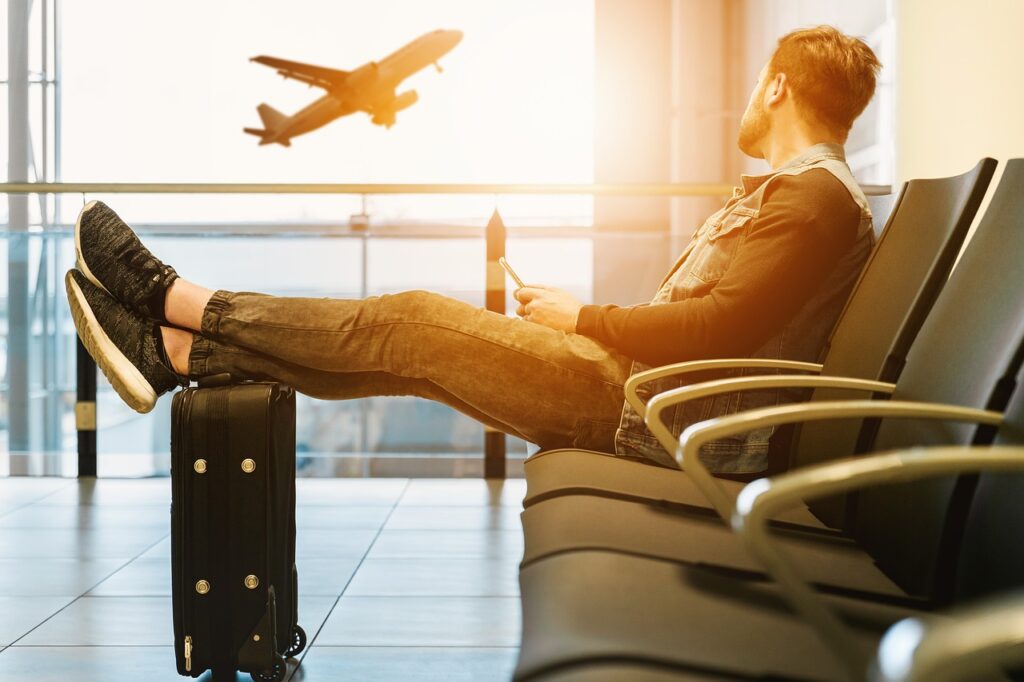
Finding Cheap Flights
- Be Flexible with Dates & Destinations – Use tools like Google Flights’ “Explore” map, Skyscanner’s “Everywhere” search, or Kiwi’s “Nomad” feature** to compare prices across different dates and locations. Mid-week flights (Tuesday-Thursday) are often cheaper than weekend trips.
- Book at the Right Time – For domestic flights, 1-3 months in advance is usually best; for international, 2-5 months ahead. Set up price alerts (Hopper, Kayak) to track fluctuations.
- Consider Budget Airlines – Carriers like Ryanair, EasyJet, Scoot, or Spirit offer ultra low fares (but watch for hidden fees on baggage).
- Use Incognito Mode – Airlines and booking sites sometimes raise prices based on your search history browse in private mode to avoid this.
- Leverage Stopovers & Alternative Airports – Flying into a smaller nearby airport (e.g., Bergamo instead of Milan) or booking a flight with a long layover can save money (and sometimes let you explore an extra city).
Scoring Affordable Accommodation
- Hostels & Guesthouses – Websites like Hostelworld and Booking.com filter budget friendly stays. Look for female/male only dorms if preferred, or private pods in capsule hotels.
- House Sitting & Couchsurfing – Platforms like TrustedHousesitters (free stays in exchange for pet care) or Couchsurfing (cultural exchange) cut costs completely.
- Last-Minute Deals – Apps like HotelTonight offer deep discounts on unsold rooms.
- Loyalty Programs & Cashback – Sign up for hotel rewards programs (Booking.com Genius, Accor ALL) or use cashback sites like Rakuten.
- Alternative Stays – Consider Workaway (free lodging for volunteering), monastery stays, or even overnight buses/trains to save on a night’s accommodation.
Bonus Tips
- Travel Off-Season – Prices drop significantly in shoulder seasons (September to mid-December, January to early March and mid-April to early June)(e.g., Europe in late fall, SE Asia in rainy season).
- Bundle Deals – Sometimes booking a flight + hotel combo (Expedia, Kayak) is cheaper than separate purchases.
- Local Transport Passes – Save on commuting with city cards (like Paris Visite or Japan Rail Pass).
- Use Travel Rewards Credit Cards – Turn your daily spending, groceries, gas, everyday purchase into free vacations.
By combining these tactics, you can stretch their budget further—leaving more money for experiences, food, and spontaneous adventures!
Conclusion
Traveling alone is more than just a trip it’s a transformative experience that builds confidence, independence, and resilience. Without the need to compromise, you move at your own pace, discover hidden gems, and connect more deeply with local cultures. Every decision, from navigating a foreign city to solving unexpected challenges, strengthens problem-solving skills and self-reliance.
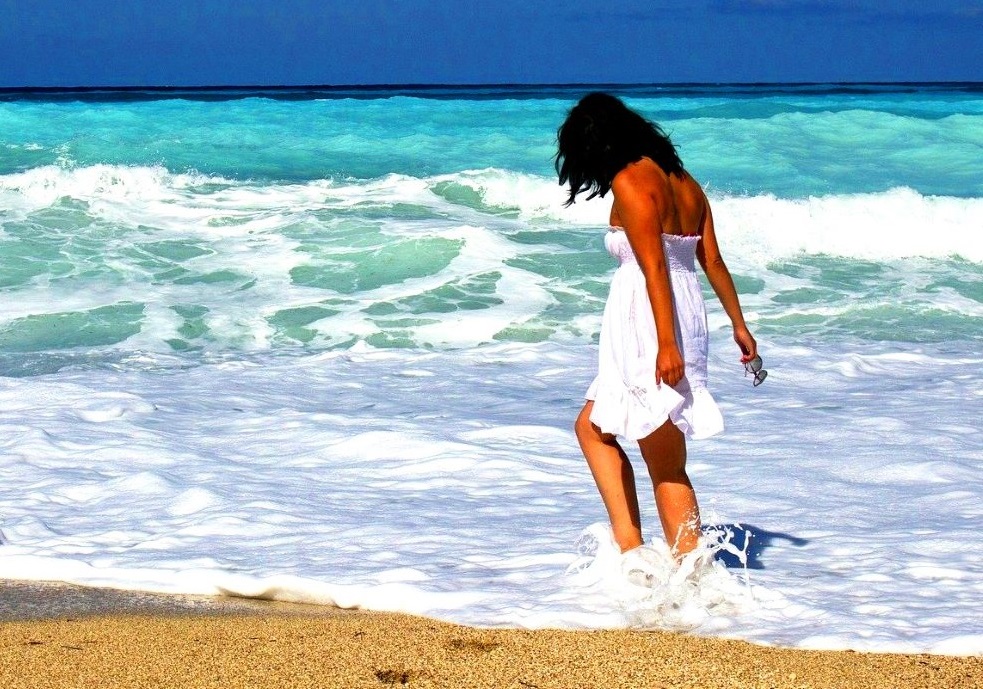
Yet solo travel also teaches invaluable life lessons. It pushes you out of your comfort zone, helping you adapt to new environments and embrace uncertainty. Whether it’s striking up a conversation with a stranger or finding your way after a wrong turn, these small victories foster a sense of empowerment.
Going on a solo trip offers unparalleled freedom: the chance to follow your curiosity, reflect without distractions, and return home with a broader perspective. In the end, going solo isn’t about being lonely it’s about discovering how capable you truly are. The confidence gained spills into everyday life, making challenges seem smaller and the world feel more accessible. Whether it’s a weekend getaway or a months long journey, solo travel is an investment in yourself one that pays off in unforgettable experiences and personal growth.
Leave a Reply